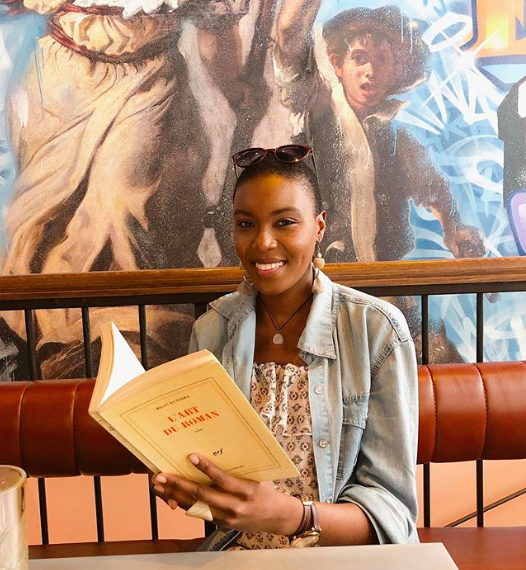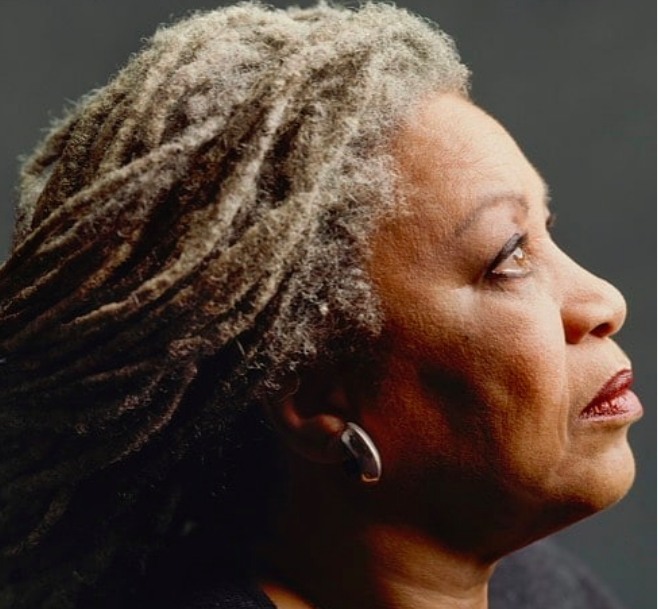 August 2019 marks the 400th anniversary of slavery in North America, known as the country’s original sin. To examine the legacy of slavery, The New York Times has launched “The 1619 Project,” which is a big deal. Created by some of the greatest minds in scholarship, politics, and law and in partnership with the Pulitzer Center, its content will be implemented in school curriculums.
August 2019 marks the 400th anniversary of slavery in North America, known as the country’s original sin. To examine the legacy of slavery, The New York Times has launched “The 1619 Project,” which is a big deal. Created by some of the greatest minds in scholarship, politics, and law and in partnership with the Pulitzer Center, its content will be implemented in school curriculums.
1619 is the year the first enslaved Africans were brought to North America (Virginia to be exact) and sold to British colonists. Slavery lasted until the 13th amendment was adopted in 1865. The average lifespan for Americans is 79, so our nation is but two generations away from slavery. This institution is inseparable from our nation’s birth as well as all social, political, and economic entities. It is therefore important to consider what this means for social, political, and economic entities today.
The legacy of slavery is complicated, so reading The New York Times articles and poems that make up the 1619 Project is a good idea. To further expand understanding, below is a list of fiction and nonfiction books that can improve a reader’s grasp on the complexities of living in a young nation with a history of slavery.
This list focuses on contemporary texts. It comprises an array of genres and topics. It includes incredible stories that are heart-wrenching, moving, and filled with humor, boldness, and undeniable strength of spirit.
It is our responsibility to learn for our American people and for future generations. Let’s share knowledge to improve our world.
Between the World and Me (2015) by Ta-Nahisi Coates (Nonfiction)
Between the World and Me focuses on racism and violence towards black individuals that stems from the legacy of slavery. Winner of the National Book Award and a Pulitzer Prize finalist, this moving text is written as a letter Ta-Nahisi Coates composed to his son on being black in America. Coates writes about his childhood, neighborhood, university, expectations, emotional outlets, and what it is like to have a young black son in a world constantly threatening violence against a black individual. The book is evocative, empathetic, and it tugs on the heartstrings. Coates’s stories of friendships at a historically black university invite the reader to imagine what it feels like to grow up and raise a son in such a dangerous world where a model student with a strong moral center can end up getting killed by cops in the dark with no criminal investigation. Coates is a prize-winning journalist who has worked for some of the biggest publications in the U.S. and now also writes Black Panther comics. A must-read.
Just Mercy (2014) by Bryan Stevenson (Nonfiction)
If there is a such thing as a hero in this world, Bryan Stevenson is one. His titles include NYU professor, top defense lawyer, Executive Director of the Equal Justice Initiative nonprofit in Alabama, and civil-rights activist. This book tells the story of Stevenson’s work providing legal defense for poor minors of color tried as adults. His young clients are individuals born into every disadvantage and then pushed into a justice system that exploits and abuses them, systematically destroying their lives. Stevenson writes that each of us is greater than the worst thing we’ve done, we all get scared sometimes, and that it is fundamentally wrong to treat a young man like he is an adult. The book discusses his experiences working with his young clients, their breakdowns, lifetime of troubles, his own learnings, the system itself, and case outcomes. See his article in the NYT 1619 Project focusing on the topic of black incarceration. And watch his TED Talk!
Beloved (1987) by Toni Morrison (Fiction)
This heart-wrenching masterpiece won the 1988 Pulitzer Prize for Fiction. It tells the story of a formerly enslaved woman who has settled with her daughter in Cincinnati. Using relationships, generational experiences, and the psychology of race-based abuse and oppression, the book shows how even the most resilient among us, brave enough to love over and over again despite losing every one, can be deeply affected by past trauma. Beloved compels the reader to feel for each of the characters who are all struggling for peace. The book is dedicated to “60 million and more” a reference to the number of Africans and their descendants who died due to the cruelty of the trans-Atlantic slave trade. An important book to read when striving to understand the effect slavery had on humanity and the complex pain and trauma. Additionally, it has been banned from several US high schools, and a good rule of thumb is that any book that has been banned is worth reading.
Blackkklansman by Ron Stallworth (Nonfiction)
Blackkklansman is a one-of-a kind book, a true story, and recently made into a film by none other than Spike Lee. It centers on the author’s experiences as the first undercover black cop infiltrating the KKK in Colorado Springs. How does a black cop fool the reprehensible racist David Duke into inviting him into the Klan to attend white supremacy rallies and hate meetings? By trading identities with a white stand-in. This exciting stranger-than-fiction story is honest in displaying a racialized society, the ugly reality of hate groups, and the danger they perpetuate. But, the humor, pride, and boldness in how some individuals face it makes this an inspiring read.
The New Jim Crow (2019) by Michelle Alexander (Nonfiction)
Michelle Alexander has an impressive resume as an ACLU director, civil rights litigator, The New York Times opinion columnist,and best-selling author. The New Jim Crow has been awarded a collection of accolades, and is now included in literature lists for university courses in civil rights, sociology, and law. This important text explains the American pattern of using the justice system to oppress African-Americans, and discusses why a disproportionate number of African-Americans are permanently locked in prison. The outcomes of this new type of opression compare to those of Jim Crow: Denial of the rights to vote or serve on a jury, denial of the right to educational opportunity, employment discrimination, housing discrimination, and more. Using human stories, American history, and data, Alexander explains why there are African-American families with four generations who have never voted, starting with the enslaved person and continuing on to their children as oppression changes shape. An unflinching work of scholarship and humanity.
Becoming (2018) by Michelle Obama (Nonfiction)
Perhaps this memoir needs no introduction but if you haven’t read it, you should. Michelle Obama has stated in public that born with no advantages, she worked hard her entire life and eventually moved her family into the White House, a house built by slaves. Admirable, clever, and sometimes astonishing, our former First Lady tells her story beginning with childhood all the way through her work in the White House. Obama grew up in a modest family in Chicago and got ahead due to her discipline, grit, and sheer intelligence. No matter how far she propelled herself, she never lost her compassion for and understanding of those who have less. With humor, determination, and great storytelling, Obama’s memoir unlocks the journey of being the first black First Lady of the US.
The Greatest: My Own Story (1975) by Muhammed Ali (Nonfiction)
The world’s greatest heavyweight champion, Muhammed Ali, was also a civil-rights activist and poet. Ali wrote this version of his story in collaboration with Richard Durham and worked with editor Toni Morrison, the Pulitzer-Prize winner. Referring to his born name “Cassius Clay” as his “slave name,” he spent his entire life confronting and fighting racism, and famously faced public backlash and jail time for refusing the military draft. He objected to fighting for a nation that oppressed his family and his people. This memoir does an impeccable job explaining how Ali’s lifetime of facing discrimination brought him to change his name, defy the American government, and choose a life of his own making on his own terms. There is unequivocal dignity in how Ali lived his life in defiance of oppression. His mental fight is perhaps even more powerful than his physical fight.
Homegoing (2016) by Yaa Gyasi (Fiction)
Called “an inspiration” by thought leader Ta-Nahisi Coates, this award-winning novel’s brilliance is in its generational approach. Beginning in Ghana with dignified navigation of tribal societies and customs, it follows descendants of the Asante people to the United States generations later. By integrating individual stories with U.S. political events such as the Fugitive Slave Act of 1850, the story shows the reader how politics can affect people, change the course of history, and influence a family’s fate. American students are often taught that emigrating to the U.S. is a joyous occasion, but through Gyasi’s novel the reader learns that it all depends. A compelling, heartfelt, intelligent novel.
Underground Railroad (2016) by Colson Whitehead (Fiction)
The winner of the National Book Award in 2016 and the Pulitzer Prize for fiction in 2017, this novel is a heartbreaking yet compelling page-turner full of resilience and strength. Partially a story of an enslaved woman who escapes the antebellum South and partially a heart-wrencher demonstrating the ugly violence in constant pursuit of black people yearning for freedom, this novel is full of stories that were common during the era. Whitehead employs familial struggles, friendships, desire, and violent hatred, to tell an extraordinary story of pain and survival. This book is truly evocative, thought-provoking, and gripping.
Also by Anastasia: What Françoise Sagan And Bonjour Tristesse Taught Me About Life à la française
These Historical Fiction Heroines Are Sure To Inspire Your Modern Feminism
Get more like this–sign up for our newsletter for exclusive inspirational content!
__
Photo: elizabeth.gilbert01 via Instagram; immaculahelenes via Instagram





